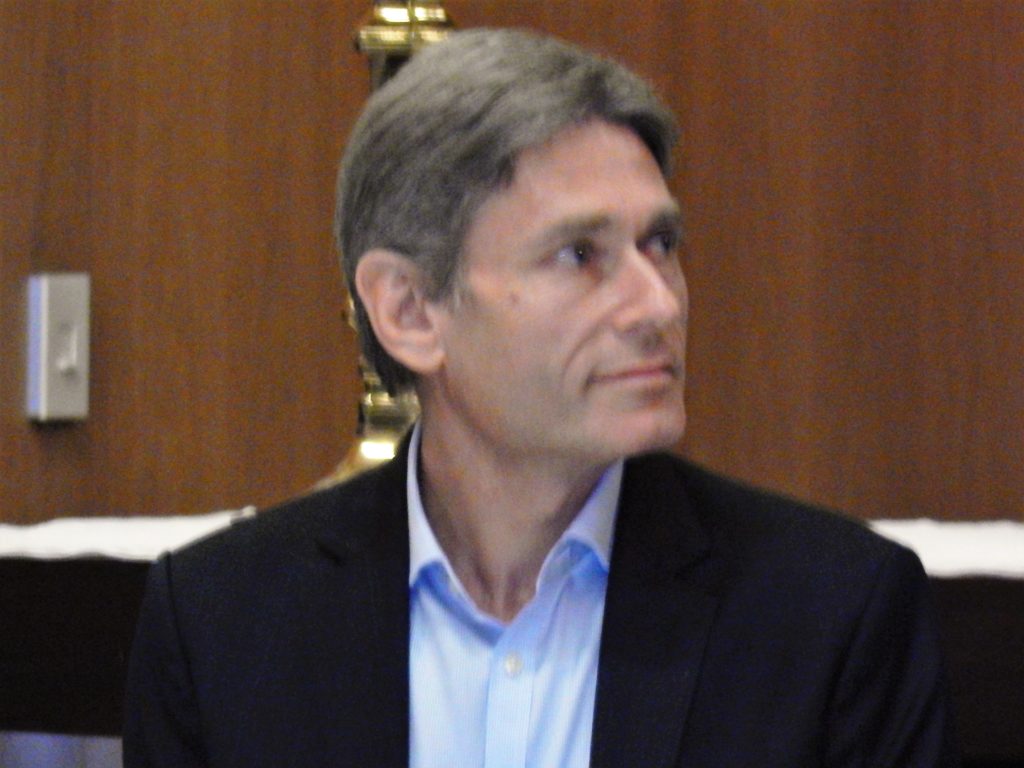Facebook – and Leonard Lance – Have Some Questions to Answer

BY TOM MALINOWSKI
Our online world has gone off track. As the internet and social media have become indispensable to commerce, innovation, social life, and global freedom, they’ve also become targets of serious abuse. We now know that Russia exploited social media to interfere in our elections, and that Facebook failed to protect the information of millions or even billions of its customers. It’s time to meet two big challenges.
The first involves what we give the companies that monopolize traffic on the internet: information about our personal lives and preferences, which they have repeatedly failed or refused to protect. This problem will only grow as technology advances, with cameras that recognize our faces, digital assistants in our bedrooms, and everything from cars to home appliances connected online.
The second involves what companies like Facebook, Twitter and Google give us in return, and how they do it. When I was growing up, Americans got their information from three news channels and local newspapers, edited by people who tried to determine what was true and important. Now social media feeds us news via millions of channels, each individually tailored to our prejudices, selected by algorithms that amplify negative and sensational accusations above all else.
The first of these challenges threatens our privacy and personal security, making us more vulnerable to hackers, spam artists, and identity thieves. The second threatens our democracy and national security, giving foreign adversaries and domestic extremists an avenue to spread malicious propaganda and turn Americans against each other.
For all these reasons, it’s a good thing that Facebook CEO Mark Zuckerberg will finally be testifying before Congress this week. Facebook and other social media companies have to do more to fight misinformation and protect their users, even if it means rethinking their business models.
But Congress must face up to its own responsibilities, too. New Jersey’s 7th District Congressman Leonard Lance, for example, has trumpeted Zuckerberg’s testimony as a chance to ask “important questions” about how online companies protect users. But Lance is the Vice Chairman of a critical subcommittee that regulates electronic commerce in the United States – this is the one position of influence he holds in the House of Representatives — and the recipient of over $290,000 in campaign contributions from the telecommunications industry. So he has his own questions to answer. For example, why did he lead the charge last year to end Net Neutrality, which further entrenched the power of the companies that control access to the internet? Why did he vote to kill privacy rules that once prevented internet service providers like Verizon from selling our personal data to the highest bidder? Can he point to a single initiative he has led to strengthen the privacy of Americans online? Has even wrestled with the challenge of whether and how to regulate online companies in light of the lessons we’ve learned from the 2016 elections, and the growing polarization of our politics?
As Assistant Secretary of State for Democracy, Human Rights and Labor, I helped lead our country’s efforts to defend freedom of speech and privacy around the world. I don’t favor censoring Facebook, or imposing content requirements on online companies. That’s what China, Russia and North Korea do, not the United States. But here are some principles that should guide our lawmakers so they can take responsible steps to protect our democracy and security:
We the people create most of the content that make online companies profitable, and we should own our data. We should have more control over how and with whom it is shared and the right to take it with us if we leave a particular social network. Whatever an online company knows about us, we should be able to see, and delete, if we choose.
- While it’s understandable that individual websites might seek to market our data in responsible ways, the companies that charge us money to access the internet itself should not be able to do so unless we give them explicit permission.
- Political advertisers online should play by the same rules that apply to political ads on TV and radio, and those ads should be accessible to everyone, not just the narrow audience being targeted. (As a Congressional candidate, I’ll be setting a good example by putting all my digital ads in a public file that everyone can see).
- Automatic software programs – commonly known as “bots” — should not be allowed to impersonate human beings on social media, whether they’re being used to disguise Russian propaganda or to push inappropriate content at our kids.
Everyone acknowledges that these are hard issues, and that the private sector will have to come up with most of the solutions. But Congress can’t just point fingers; it must play its role in defending the public interest.
Tom Malinowski is a Democratic candidate for Congress in New Jersey’s 7th District.










Leave a Reply